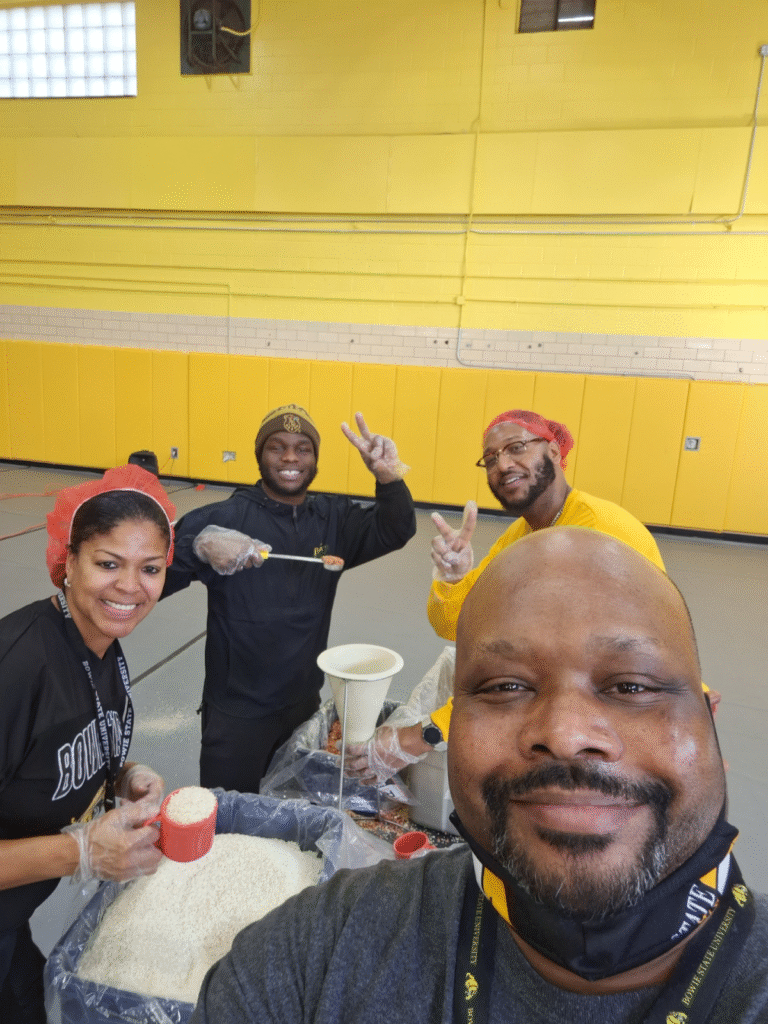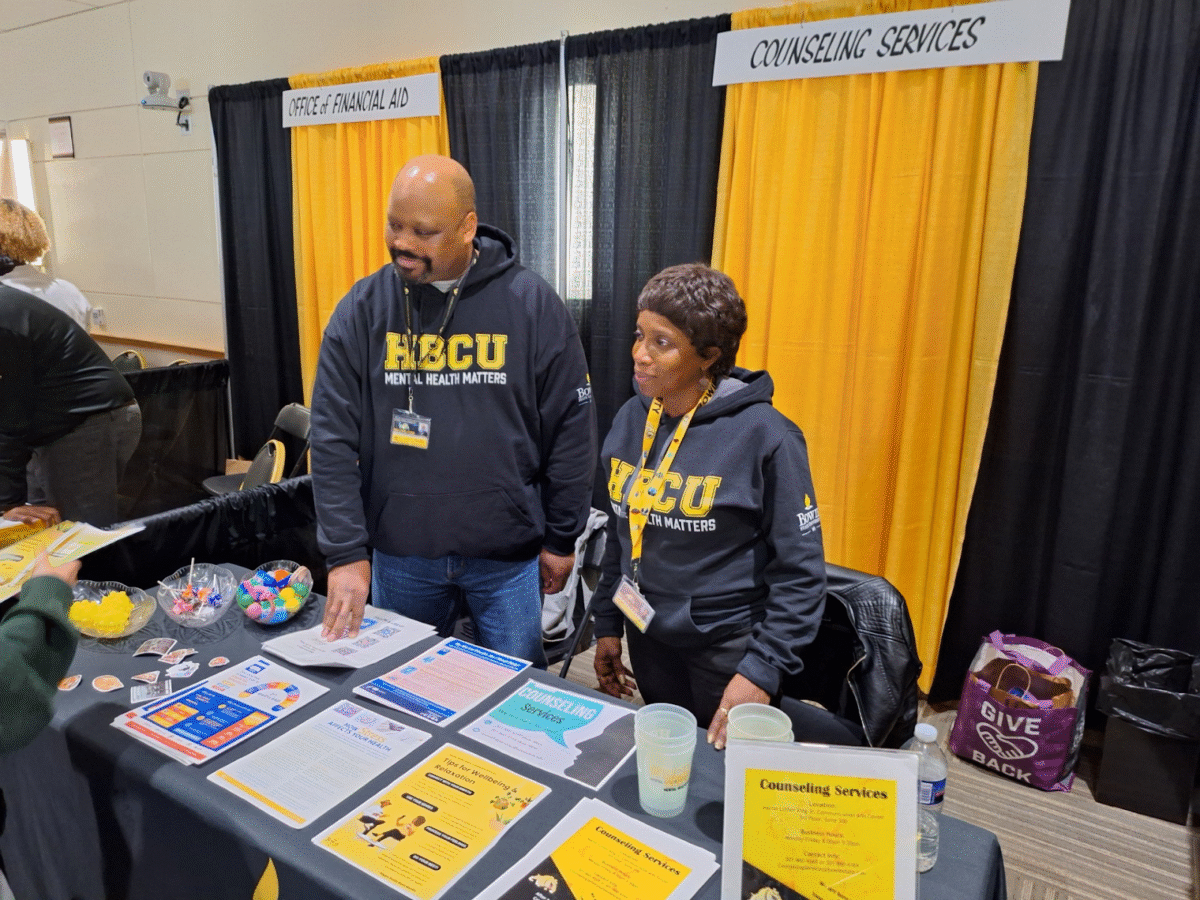Dr. Keith Hicks put his best foot forward. Outside a lecture hall in the James E. Proctor Jr. building, he piled pizza, wings and drinks on a table at the entrance to the room with the discrete lull of lofi music, hoping to welcome students to a special mid-afternoon gathering.
On a typical day around this time, Dr. Hicks, a man fitted with a full beard and casual business attire, does what most counselors do — meet with students, help them through life’s difficulties and ensure they get access to the tools they need to be successful on campus.
But Sept. 19 was different.
On this day, for the second time in consecutive semesters, Dr. Hicks offered a group support session for students who face a unique challenge: they are people whose brains might deviate from the typical functions experienced by the majority of the population, identifying as “neurodiverse,” a broad term for people with such conditions as autism, attention-deficit hyperactivity disorder and obsessive-compulsive disorder.
Dr. Hicks said he wants “to have a safe space for this population.”
For several minutes after the scheduled 2 p.m. start of the group meeting, Dr. Hicks waited alone, until one by one, students began to trickle in.
Adrienne Yancy was first. Yancy, a fifth-year criminal justice major, is among an estimated 15 to 20 percent of the world’s population that identifies as neurodiverse.
“I can’t say this for everyone, but for me, it can be a bit over stimulating and the communication is kind of rough in general and that’s very difficult for me,” Yancy said.
The group quickly connected through their shared experiences of navigating a majority neurotypical world.
“It’s just like struggling in a way that you feel you’re not normal,” said Monnie Gholston, a first-year business administration major. “Sometimes I just have random bouts of anxiety, sometimes I just can’t focus — I’m doing too [much] stuff in my head that I can’t focus on the real world.”
It’s common for neurodivergent individuals — especially those with autism — to experience feelings of isolation. These experiences extend to collegiate life and, though the Disability Support Services office doesn’t have the statistics on paper yet, Dr. Hicks can confirm one thing — this group’s population is growing on campus.
With this growth comes an even greater need, one Hicks noticed and took action to address.
“Some students who identified on the spectrum or were neurodiverse could do the actual work of college academic standards, but lacked those kinds of social skills for succeeding in the non-classroom aspects of college,” said Dr. Hicks, a student counselor with more than 10 years worth of experience.

With logistical support from the Disability Support Services (DSS) office, Hicks formed the Neurodiversity Support Group during the spring 2024 semester.
“The initial mission was to have a kind of safe space for this population who might need space during the day to kind of get away from being overstimulated, learn socialization skills, or, you know, have a kind of a non-threatening place to just connect with other students.”
By the end of the meeting, Dr. Hicks said he was pleased with the diverse group of 7 students including commuter, freshmen, transfer, graduate and senior students. Amongst themselves, there were even some newfound friends.
With plans to host more meetings for the Neurodiversity Support Group, Dr. Hicks wants to not only create a safe space for neurodiverse students but for students who are unfamiliar with the movement as a whole—leaving the group open to those willing to learn.
“Broadly, this kind of [neurodiverse] movement is trying to get away from having these conditions thought of as a disorder,” he said. “That’s sort of the idea and philosophy around what we mean when we talk about being neurodiverse, is that there’s no one way of thinking or feeling or processing the world.”

